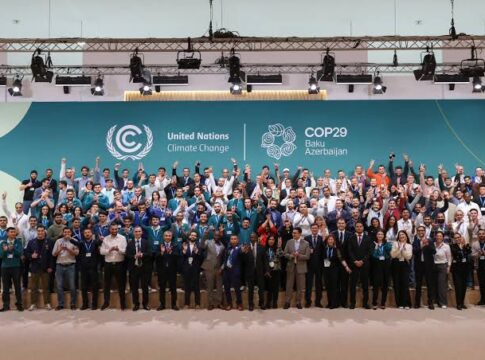World leaders at COP29 in Baku, Azerbaijan, have agreed to a $300 billion annual climate finance deal to assist developing nations. The pact, known as the Baku Finance Goal, aims to mobilize $1.3 trillion by 2035 for climate adaptation and mitigation, marking a significant leap in global climate funding commitments.
The agreement, finalized after 14 days of negotiations, triples the previous $100 billion annual pledge established in 2009. COP29 President Mukhtar Babayev described it as “the best possible deal” despite the geopolitical divisions that threatened progress. “In a year of fragmentation, many doubted we could deliver. They were wrong,” Babayev said during the summit’s closing plenary.
Tensions were high throughout the talks, particularly among negotiators from the Global South. African representatives, including Nigeria’s delegation, criticized the deal as inadequate, with one delegate labeling it an “insult.” Negotiators from poorer nations argued that the commitment fell short of the urgent needs faced by vulnerable countries battling the escalating impacts of climate change.
READ MORE: Football Powerhouses and New Contenders Set for TotalEnergies CAF Africa Cup of Nations 2025
The summit, originally set to end on November 22, extended into the early hours of November 24 after 33 hours of additional deliberations. Delegates from the Global South initially walked out, rejecting earlier proposals as weak and impractical.
Dubbed the “Finance COP,” COP29 sought to address the long-standing financial gaps in global climate action. Wealthier nations faced sharp criticism for failing to meet previous financial commitments, casting doubt over their ability to uphold the new $300 billion annual target.
Observers, however, view the agreement as a tentative step forward, with implementation being the next critical challenge. As the world battles climate crises, all eyes now turn to the delivery mechanisms and accountability for these ambitious pledges.




